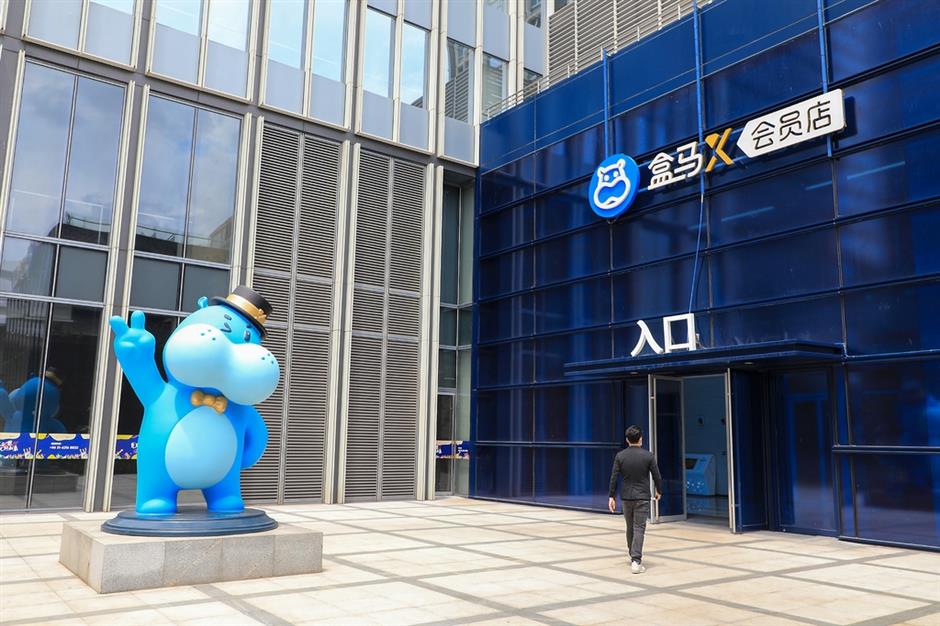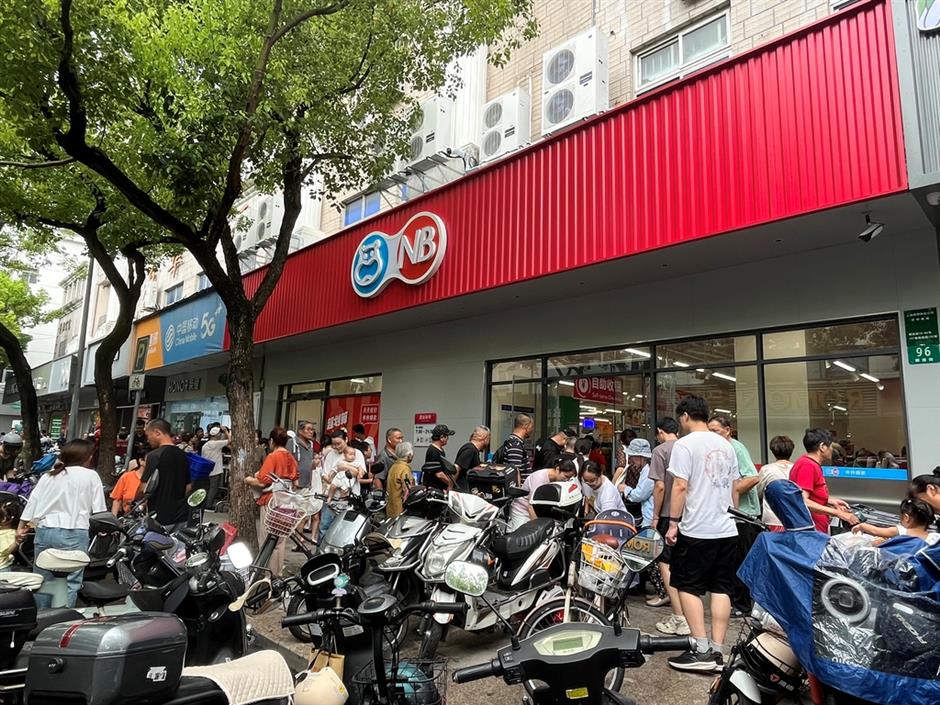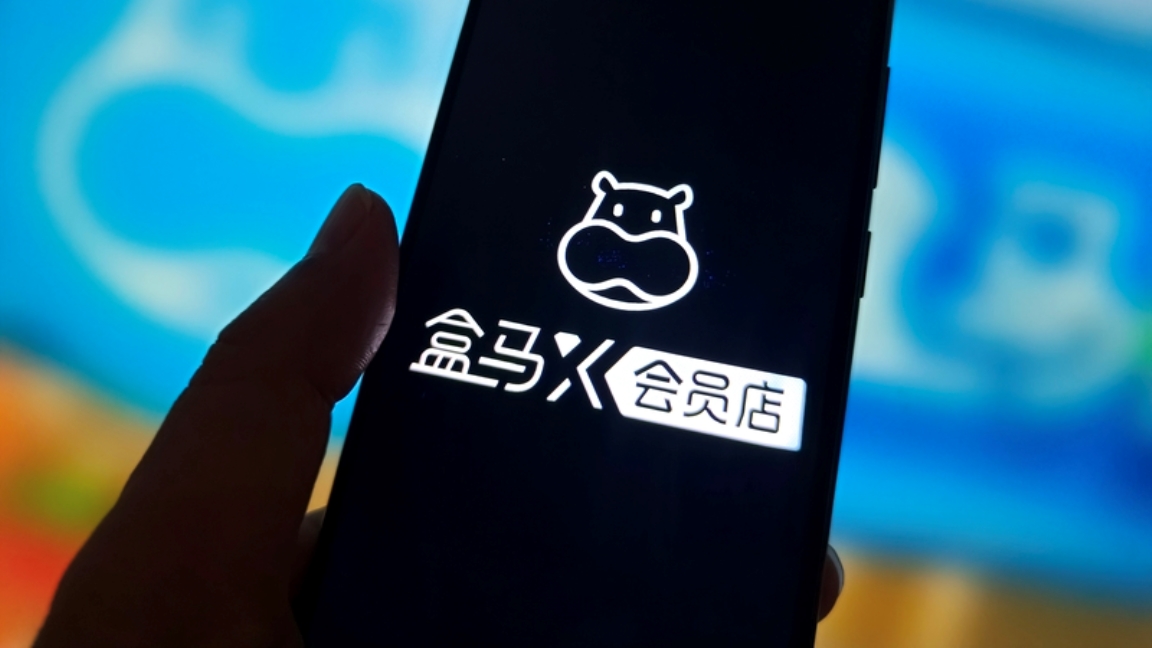
Alibaba is going to shut its last Hema X membership store at the end of this month, amid tough market competition with foreign retailers, pricing mistakes, supply-chain problems and a change in management focus.
Nine of 10 outlets have already been shuttered. The last one to go is the one that opened first – the Senlan Shangdu branch in the Pudong New Area.
Hema X is a unit of Hema, the grocery chain subsidiary of Alibaba that operates the successful Freshippo food stores. Hema X's original purpose was to tackle the market dominance of membership retailers like Sam's Club and Costco. At the onset in 2020, Alibaba projected 100 branches nationwide within three years.
So what happened and why has US-based Sam's Club and Costco survived in China while Hema X washed out?

The end of a retail experiment: a Hema X store in Shanghai
Hema X megamarts typically span over 15,000 square meters, featuring a warehouse-style layout and operating with integrated online and offline sales. The stores offered delivery services to members within a 5 to 20-kilometer radius, with the fastest option being "one-hour delivery."
The membership was tiered: Gold Membership cost 258 yuan (US$36) a year and Diamond Membership, 658 yuan. The fee structure was designed to attract a key demographic of middle-class and high-end consumers.
Hou Yi, former Hema chief executive, once described Hema X as a "head-on battle with Costco and Sam's Club, which will quickly and effectively improve our own capabilities."
That vision began crumbling early on. An outlet in downtown Beijing closed only seven months after opening, and other stores eventually followed suit. Hou was replaced as CEO by Yan Xiaolei in March 2024.
Many industry observers attributed Hema X's demise to a change in management focus. Yan turned his focus on other Hema brands, especially Hema NB, a hard-discount store chain.
But there may be more to it than that.
Competitors, especially Sam's Club, have proven that the membership store model works in China. Sam's Club entered China in 1996, gradually opening 15 stores around the country. In 2016, a rapid expansion began. It now has 48 stores with more than 5 million registered members and annual fee income of 1.3 billion yuan.
Apart from competition, Hema X had problems in product selection, pricing and operations.
Some products marketed under the Hema MAX label were sourced from the same suppliers as Freshippo, Hema's non-member grocery chain, but were sold at a higher prices. That made some Hema X customers feel like they were being overcharged.
Customers also complained about the quality of products.
Mo Li, a former Hema X member from Anhui Province, said he dumped his membership after six weeks following a series of problems.
One involved a steak with leaking vacuum packaging, another involved a missed delivery and a third was related to a "funny-tasting pancake" sold under the Hema MAX label, Mo explained.
"The experiences shattered my confidence because I had mistakenly believe that Hema X would be selling better products due to the membership fee."
A relatively weak supply chain also hampered the growth of Hema X. A membership warehouse store requires a robust supply chain to globally source high-quality, low-cost products.
Both Sam's Club and Costco have spent years building global procurement networks, allowing them to acquire premium goods at lower prices. By contrast, Hema X's supply chain was not strong enough to compete on procurement costs and product variety. That resulted in uncompetitive pricing and a failure to provide members with a strong sense of value.
"In many cases where products in Hema X overlapped with goods at Freshippo, the prices weren't much lower and sometimes even a bit higher," said Wang Zhiren, a member in Shanghai. "So what's the point of buying a membership?"
While the curtain has fallen on Hema X, Hema NB has become a popular shopping option.

A newly opened Hema NB store in Shanghai's Jiading District draws queues of customers on its first day.
In 2023, Hema NB's two trial stores in Shanghai achieved a daily sales volume of 150,000 yuan and a gross profit margin of 15 percent. The discount food retailer, patterned on a community-based marketing model, has 300 stories, mostly in Shanghai and neighboring provinces of Zhejiang and Jiangsu. Its main competitor is German-based Aldi, which now has more than 70 stores in the Yangtze River Delta region.
Hema NB deliberately chose to avoid the high-end of the market, targeting instead densely populated communities with stable shopping habits. By using a price-anchoring strategy and precise market positioning, the stores successfully reach over 3,000 households within a 500-meter radius.
But soon the market will become even fiercer.
Rival Meituan has recently been reorganizing its business lines, including an overhaul of its community-focused operation Meituan Select and a nationwide expansion of its warehouse service Xiaoxiang Supermarket.

